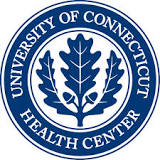Good Oral Health - A Bi-level Intervention to Improve Older Adult Oral Health
| Status: | Active, not recruiting |
|---|---|
| Conditions: | Dental |
| Therapuetic Areas: | Dental / Maxillofacial Surgery |
| Healthy: | No |
| Age Range: | 18 - Any |
| Updated: | 1/12/2019 |
| Start Date: | May 2015 |
| End Date: | June 2019 |
This study will test an intervention designed to change oral health norms and reduce
disparities in oral health among vulnerable adults residing in publicly funded senior housing
in Central Connecticut. The intervention model is based on Fishbein modified theory of
reasoned action operationalized through Adapted Motivational Interviewing and Practice to
Mastery. The intervention includes two components: 1) a face to face administration of the
Adapted Motivational Interviewing and Practice to Mastery, a participatory counseling model,
and 2) a targeted building level campaign consisting of three half-day oral health events
with skills development through practice to mastery to parallel the individual intervention,
all based on the study's conceptual model. The study uses a modified fractional factorial
design to evaluate the face to face and campaign components separately and in different
additive sequences. Six buildings will be paired in three dyads. The buildings in each dyad
will be randomized to either having the Adapted Motivational Interviewing and Practice to
Mastery intervention first followed by campaigns or to having the campaigns first followed by
Adapted Motivational Interviewing and Practice to Mastery. Seventy-five residents will be
recruited in each building for a total of 450 participants. There will be four assessments:
1. T0 will include a survey, oral hygiene skills assessment and clinical assessment of the
Gingival Index and Plaque Score. The survey will provide data on the conceptual domains
that are the target of the tailored intervention
2. T1 will follow the AMI-PM or CA+PM (depending on condition) and will include the survey,
oral hygiene skills assessment and clinical assessment of the Gingival Index and Plaque
Score. This assessment will occur 1-2 months after the initial intervention
3. T2 will follow the AMI-PM or CA+PM and will include the survey, oral hygiene skills
assessment and clinical assessment of the Gingival Index and Plaque Score. This
assessment will occur 6 months after the initial intervention
4. T3 will include oral hygiene skills assessment and clinical assessment of the Gingival
Index and Plaque Score. This will occur 15-18 months after study entry. We will use
general linear mixed models (GLMM) or general estimating equations (GEE), respectively,
to fit a model with intervention and period effects using the MIXED procedure in SAS.
disparities in oral health among vulnerable adults residing in publicly funded senior housing
in Central Connecticut. The intervention model is based on Fishbein modified theory of
reasoned action operationalized through Adapted Motivational Interviewing and Practice to
Mastery. The intervention includes two components: 1) a face to face administration of the
Adapted Motivational Interviewing and Practice to Mastery, a participatory counseling model,
and 2) a targeted building level campaign consisting of three half-day oral health events
with skills development through practice to mastery to parallel the individual intervention,
all based on the study's conceptual model. The study uses a modified fractional factorial
design to evaluate the face to face and campaign components separately and in different
additive sequences. Six buildings will be paired in three dyads. The buildings in each dyad
will be randomized to either having the Adapted Motivational Interviewing and Practice to
Mastery intervention first followed by campaigns or to having the campaigns first followed by
Adapted Motivational Interviewing and Practice to Mastery. Seventy-five residents will be
recruited in each building for a total of 450 participants. There will be four assessments:
1. T0 will include a survey, oral hygiene skills assessment and clinical assessment of the
Gingival Index and Plaque Score. The survey will provide data on the conceptual domains
that are the target of the tailored intervention
2. T1 will follow the AMI-PM or CA+PM (depending on condition) and will include the survey,
oral hygiene skills assessment and clinical assessment of the Gingival Index and Plaque
Score. This assessment will occur 1-2 months after the initial intervention
3. T2 will follow the AMI-PM or CA+PM and will include the survey, oral hygiene skills
assessment and clinical assessment of the Gingival Index and Plaque Score. This
assessment will occur 6 months after the initial intervention
4. T3 will include oral hygiene skills assessment and clinical assessment of the Gingival
Index and Plaque Score. This will occur 15-18 months after study entry. We will use
general linear mixed models (GLMM) or general estimating equations (GEE), respectively,
to fit a model with intervention and period effects using the MIXED procedure in SAS.
Inclusion Criteria:
1. Disabled children and adults aged 18 years and above, and adults 62 and above,
including both male and female building residents, and minorities and non-minorities;
2. Permanent residence in sample buildings;
3. Independent of conservator;
4. Must be able to speak English or Spanish;
5. Judged competent to participate (based on ability to respond correctly to key
questions about information covered during administration of informed consent.
6. Have two or more remaining natural teeth.
Exclusion Criteria:
1. Considered by research staff to be cognitively unable to give informed consent;
2. Exhibition of continued disruptive behavior while participating in the project;
3. History of infective endocarditis, prosthetic cardiac valve replacement, insertion of
an arterial stent in past 6 months, myocardial infarction (heart attack) in past 6
months
4. under conservatorship
5. fewer than two natural teeth
We found this trial at
1
site
263 Farmington Ave
Farmington, Connecticut 06030
Farmington, Connecticut 06030
(860) 679-2000

Principal Investigator: Susan Reisine, PhD
Phone: 860-679-3823
University of Connecticut Health Center UConn Health is a vibrant, integrated academic medical center that...
Click here to add this to my saved trials